In pictures: Alexandra marks Armistice Day
Rowan Schindler
10 November 2021, 11:20 PM
 The Alexandra-Clyde RSA marked Armistice Day with the firing of a QF 25-Pounder field gun on the 11th hour on the 11th day of the 11th month. Photos: Rowan Schindler
The Alexandra-Clyde RSA marked Armistice Day with the firing of a QF 25-Pounder field gun on the 11th hour on the 11th day of the 11th month. Photos: Rowan Schindler Armistice Day marked today with the firing of the historic QF 25-pounder field gun, but only a small ceremony took place due to current Covid-19 Alert Level 2 protocols.
About 30 people gathered in Alexandra's Pioneer Park to fire the gun and take part in the ceremony.
Alexandra-Clyde RSA vice-president Gerry Sutherland says it was important to come together and remember the occassion.
"Today is a day to bring people together, and because of Covid we did the best we could."
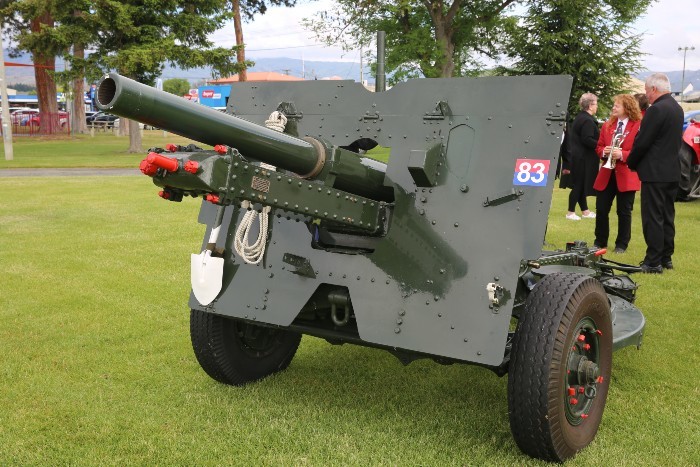
The historic QF 25-Pounder field gun has never been fired in anger, and was last fired by the military at the 1974 Christchurch Commonwealth Games.
The Alexandra-Clyde RSA gun crew fired the historic artillery piece three times on the hour, followed by two minutes silence, the reciting of The Ode and finally, the playing of The Last Post.
Armistice Day is commemorated every year on 11 November to mark the armistice signed between the Allies of World War I and Germany at Compiègne, France, at 5:45am.
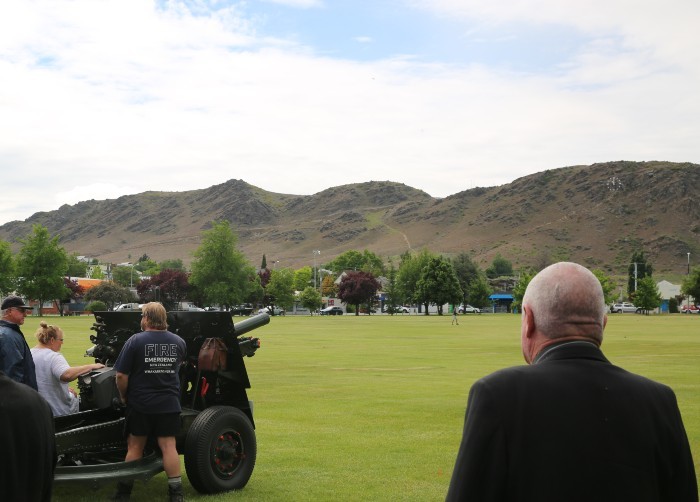
The crew readies the field gun for firing.
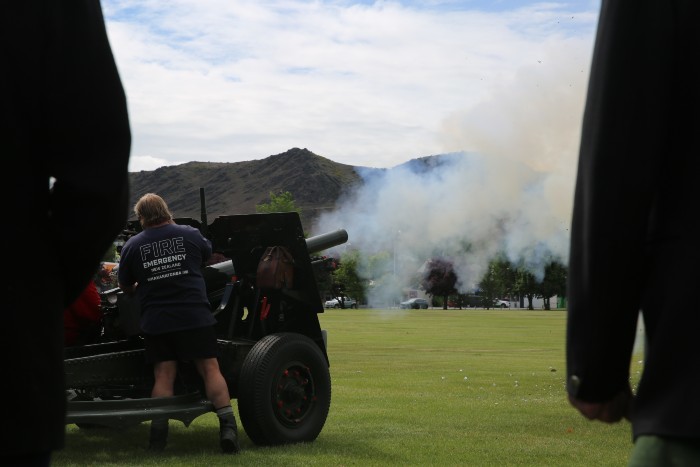
The gun fired towards Matangi Station and the Alexandra clock, with the blast reverberating around the hills.
The armistice declared the cessation of hostilities on the Western Front of World War I, which took effect at eleven o’clock in the morning—the "eleventh hour of the eleventh day of the eleventh month" of 1918.
But, according to Thomas R. Gowenlock, an intelligence officer with the U.S. First Division, shelling from both sides continued for the rest of the day, ending only at nightfall.
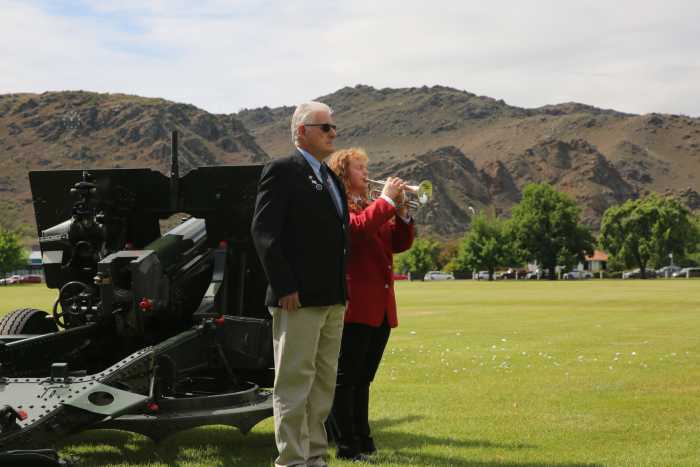
The Last Post, played by Roxburgh Pioneer Energy Brass Band member Christine Wright.
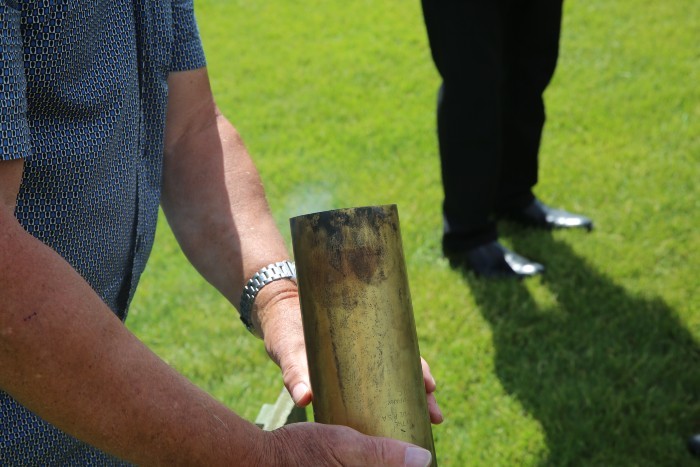
The spent 25-Pounder cartridge, still smoking.
The armistice initially expired after a period of 36 days and had to be extended several times.
A formal peace agreement was only reached when the Treaty of Versailles was signed the following year.
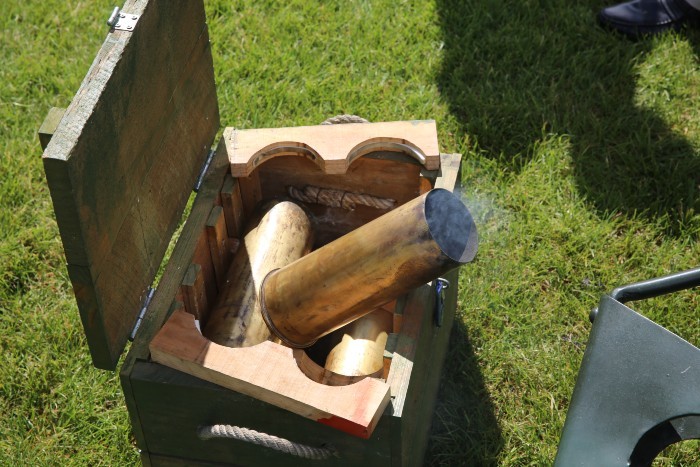
The cartridges are packed by expert locals.
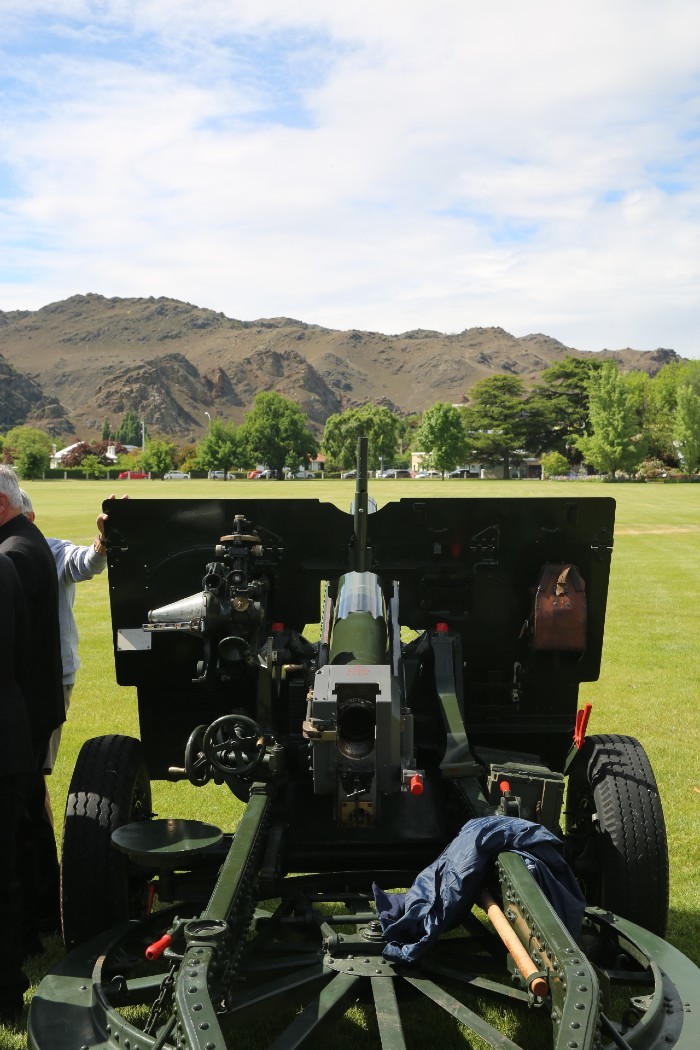
The view from the position of the gun crew.
WWI started after events on 28 June 1914, when Archduke Franz Ferdinand, heir to the throne of the Austro-Hungarian Empire, and his wife Sophie were assassinated in the Bosnian city of Sarajevo during a parade.
The fallout from this faraway event would ultimately lead over 100,000 New Zealanders to fight in Europe, and claim the lives of 18,000 Kiwis and lead to the wounding of 41,000.
New Zealand's population was just 1.1 million at the time.
Returning soldiers also brought the Spanish Flu, which tragically killed approximately 9,000 people.


